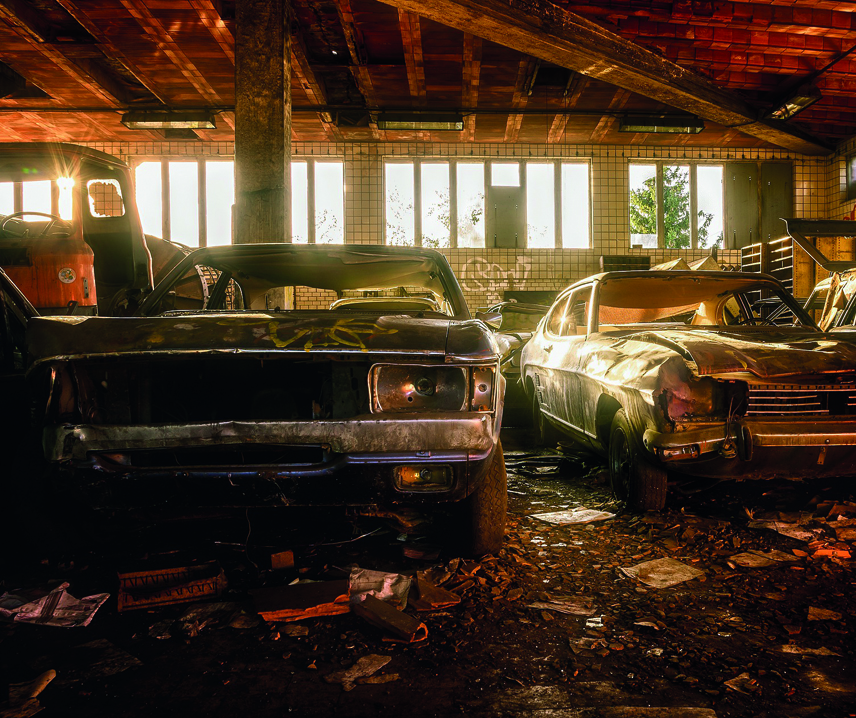
With the announcement of the PM’s new green initiative, scrappage of petrol and diesel vehicles will become increasingly prevalent. If you are thinking of setting up in the scrappage business, there is plenty to know before getting started.
Here’s our advice on how to comply with the end-of-life vehicle (ELV) regulations, how to get a licence to be an authorised treatment facility and meet recycling goals, as well as putting the correct scrap dealer insurance in place.
Scrap – a Buoyant Market
British scrap yards have certainly come a long way from the days of Steptoe & Son and their faithful nag Hercules operating out of a back yard in Oil Drum Lane. Licensed scrap dealers are now one of the most highly regulated sectors of the motor trade in terms of legality, health and safety and environmental protection.
Before you read on, first a word of warning: it is illegal for anyone to buy scrap metal using cash. Only electronic payments and cheques are permitted. If you choose to ignore this rule, then the rest of this blog isn’t for you.
However, if you do decide to legitimately establish yourself as a scrap dealer or a breakers yard, it can be a lucrative business. End-of-life vehicles (ELVs) are just as important a part of the motor trade industry as the shiny new vehicles rolling off the production line.
There are more than 1,500 UK scrap yards in the UK with combined revenues of around £5bn per annum. Industry revenue is expected to grow at an annual rate of 3.3 percent to reach £6.4 billion*.
Obtaining a Metal Dealer’s Licence
In 2013, the new Scrap Metal Dealers Act came into force to ensure that all scrap metal dealers hold and display a licence issued by the relevant local authority. This can be either a site licence or a mobile collector’s licence. It permits local authorities to set a licence fee and allows for the closure of unlicensed sites.
The act also compels scrap dealers to verify the identity and address of persons from whom they receive metal and keep detailed records of all scrap bought, processed and sold. This is commonly referred to as the Police Record. Finally, it provides the police and local authorities with the right to enter and inspect scrap metal dealers’ premises.
Getting Started
The ELV Directive introduced controls on the scrapping of vehicles and only allows them to be disposed of by authorised treatment facilities (ATFs). Scrap yards need to be licensed if they want to handle ELVs before they have been ‘depolluted’.
To operate a scrap yard, you also need to obtain either a metals recycling site waste management licence/environmental permit or exemption status from the Environment Agency in England, Natural Resources Wales, the Northern Ireland Environment Agency, or the Scottish Environment Protection Agency (SEPA).
You must comply with environmental permitting regulations to become an Authorised Treatment Facility (ATF) and retain this permit to allow you to depollute and dismantle ELVs. The conditions for both the licence and exemption status are stringent and include background and financial checks. You will be required to demonstrate your technical competence and, if you’re applying for an environmental permit, you’ll need to submit a fire prevention plan with your application.
In June 2020, the UK HMRC announced that anyone renewing a scrap licence needs to carry out a tax check. The licensing body (typically a local authority) will have to obtain confirmation from HMRC that the applicant has completed the check before being able to consider their renewed licence application.
Licences and Insurance
You will need an operator’s licence if you use any vehicles over 3.5 tonnes gross vehicle weight and your employees must be appropriately licensed to drive this class of vehicle. Drivers must also have passed the initial Driver Certificate of Professional Competence (CPC) qualification.
Contact your insurer or insurance broker and explain to them exactly how your business will operate. They should be able to guide you on the scrap dealer or breakers yard insurance you must have by law, and other cover you should consider. This might include:
- public liability insurance
- employer’s liability insurance
- product liability insurance
- premises, premises contents and stock cover
- business interruption insurance
- goods in transit (being collected or delivered)
- cash cover
- motor trade insurance (for pick-up vehicles and trailers)
*source: https://www.ibisworld.com/united-kingdom/market-research-reports/scrap-metal-recycling-industry/
Some useful links:
https://www.gov.uk/guidance/when-a-motor-vehicle-is-waste
British Metals Recycling Association: https://www.recyclemetals.org/
The Chartered Institution of Wastes Management (CIWM) represents the waste industry as a whole in the UK: https://www.ciwm.co.uk/
Waste Management Industry Training and Advisory Board – WAMITAB: https://wamitab.org.uk/